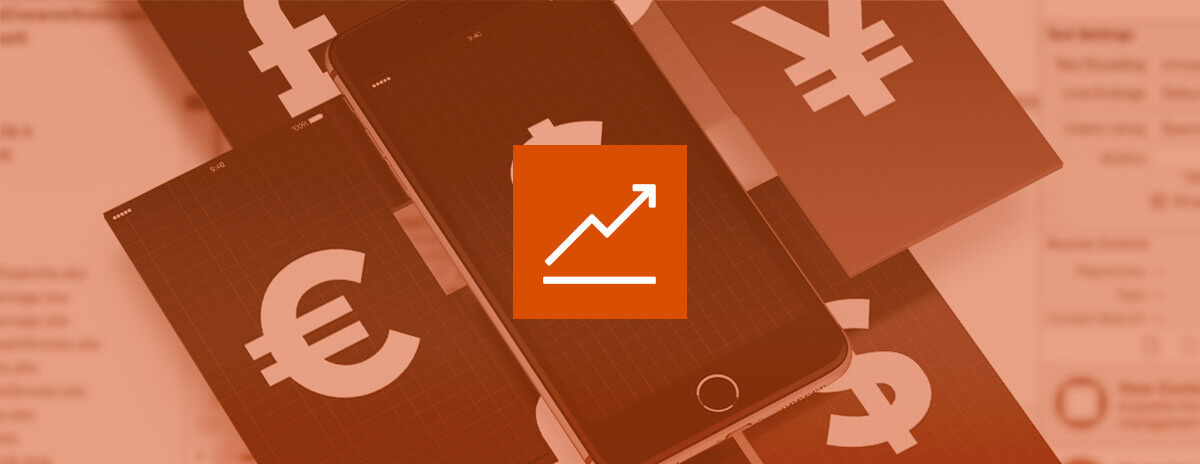Mobile application development is a long and money-consuming process. How to create an app and make money? Let’s open a secret of money making apps.
Table of Contents
I Have an Idea for an App
Starting a project is exciting, but without a good roadmap, it could turn into a disaster. First of all, consider your idea. What does your app do? Who for? How will the users benefit from it? These questions will help you clarify your idea.
Now it’s time for a market research. You can check out the competitors’ apps in a store to discover the monetization strategy of the similar apps and get to know what users are excited with or complaining about. The key point is to get rid of the weaknesses in your app. It will also give you insights into some new features.
What to do then the project idea is polished? Now you probably wonder how to create an application, and how much does it cost to make an app, right? We wrote an article about hiring app developers and app development process, check it out and let’s get right into the app monetization.
There Are a Lot of Money Making Apps*
There are billions of dollars in applications that cost nothing. It may sound like nonsense, but it’s true. In a mobile app marketplace users aren’t ready to spend even $1 for an application.
*ALMOST 93% OF THEM ARE FREE TO DOWNLOAD
In such case, creating a free app doesn’t look like a bad idea, right? However, it doesn’t mean that a free app can’t be considered profitable.
There are several options available to make money with apps. Sure, you can make people pay for it, but the thing is they don’t want to. You gotta be inventive.
Read also: How Much Does It Cost to Make an App
How to Sell an Idea to a Customer aka How Do Apps Make Money
FREEMIUM
Developers launch two versions of the app – free and paid (usually named Pro) to display basic and advanced functionality. When users download a free app, they get a kind of demo version of the product which shows what they can have. Using this strategy you can give clients reasonable grounds to buy your app. It works best with mobile games and marketing solutions.
Pros:
The most popular way to make money from the app
More than capable of providing you with money
Cons:
Only a small percentage of users will buy the premium version
Freemium content can often affect the quality of the app itself
IN-APP PURCHASES
The option was implemented by Apple a few years ago. An app with in-app purchases is still free in the store, but you can have extra downloads. If a basic version of the app is not enough for a user, its performance could be improved by payments. For example, VSCO sells filters as an extra functionality. In this case, the store takes a percentage of the revenue from each in-app purchase.
Pros:
Easy to make purchases inside the app;
An opportunity to increase a conversion rate by offering up enticing additional content for your price.
Cons:
The latter strategy requires much more development work, so it will increase the cost of your app;
Some people don’t install an app when they see that it is not completely free.
IN-APP ADVERTISING
Ads come in different sizes and position in the app and they are the most simple way to make money with an app. But placing an advertising is not a goldmine if there is no complex approach behind it.
To profit from the in-app ads you should build effective cooperation with advertising networks and place the ad smartly. Your profit depends on the ad format (videos work better than static ads), impressions, total downloads, which countries users are from. iOS applications have a higher CPM rate (cost per thousand impressions) and make more money with in-app ads. You can gain profit either by clicks and impressions or views. The second way is usually chosen by small companies.
In some cases, advertising can disaffect users which make app owners remove ads. Be prudent with the in-app advertising setup, target the audience and choose advertisers smartly.
Pros:
Thrilled and targeted audience
Aimed to give bigger results
Cons:
It won’t provide with more profit, particularly with Android apps
Engagement with banner ads is low in app advertising
Engagement with video ads is shrinking
COST PER INSTALL (CPI) MODEL
By advertising with third parties, your app makes money for each installation – this it what CPI means. There is a chance to work with top performing publishers (the most promising are Chartboost). But don’t spin your hopes on making crazy money per install. The fee here varies from 0.90$ to 3.00$
Pros:
Possible higher ranking in different app markets
Lifetime value means profit for a longer period of time
You can be both an advertiser and a publisher
Cons:
The cost
Limited control over traffic
Limited user behavior tracking
APP SPONSORSHIP
Sponsors are the money-making driving force in YouTube and for the last couple of years, apps get sponsored too. Developers promote big-name companies in their applications to receive money clicks-through. Except for money, you can get a good traffic from a sponsor’s website or social media pages if the company mention your product somehow.
Pros:
Brand enhancement
Access to niche markets
Cost effective
Cons:
Lack of control
Negative image association
There Is No Universal Formula to Make Money With Apps
Frequently, app owners use several monetization approaches simultaneously. As you can see, every strategy has its own pros and cons.
Test your strategy. A smart approach will engage users and make your app financially successful.
Contact us for an estimate!






